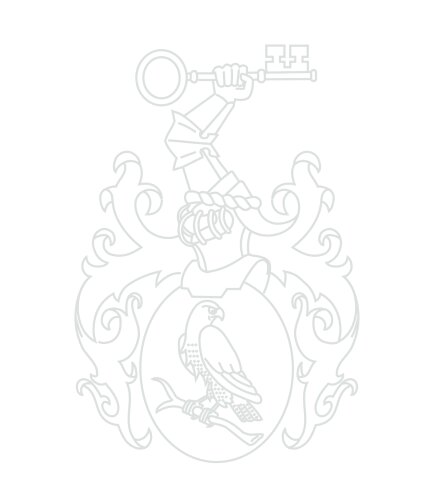Best Faith-Based Law Lawyers in Copenhagen
Share your needs with us, get contacted by law firms.
Free. Takes 2 min.
List of the best lawyers in Copenhagen, Denmark
About Faith-Based Law in Copenhagen, Denmark
Faith-Based Law in Copenhagen, Denmark, pertains to legal practices and frameworks that acknowledge the religious beliefs of individuals or groups, often intersecting with personal, family, or even organizational aspects. While Denmark is primarily a secular state, the law provides room for religious freedoms and practices within certain legal frameworks. In Copenhagen, Faith-Based Law can encompass issues such as marriage, divorce, inheritance, and communal religious rights, all intersecting with the state law that governs civil matters.
Why You May Need a Lawyer
Engaging with Faith-Based Law can be complex due to the interplay between religious practices and state regulations. You may require a lawyer in situations such as:
- Conflicts relating to religious inheritance versus civil inheritance laws.
- Marriage or divorce proceedings where religious laws differ from Danish civil laws.
- Establishing religious organizations or charities compliant with both religious principles and Danish law.
- Navigating employment or discrimination cases where religious beliefs are relevant.
- Seeking exemptions or understanding rights related to religious holidays, attire, or observances in public or workplaces.
Local Laws Overview
The legal framework in Denmark provides substantial freedoms for religious practice under the Danish Constitution, which ensures the right to practice religion openly. However, Faith-Based Law must coexist with secular Danish law ubiquitously, such as:
- Family matters: Civil law governs marriage and divorce, but religious ceremonies hold cultural significance; alternatives are available for those seeking religious sanction or recognition.
- Inheritance disputes: Danish inheritance law prevails, though personal wills can reflect religious wishes if they meet civil legal standards.
- Discrimination law: Ensures protection against religious discrimination, providing a recourse when religious beliefs intersect with civil rights issues.
Frequently Asked Questions
What is Faith-Based Law?
Faith-Based Law involves legal practices and principles that incorporate religious beliefs or ceremonies parallel to or within civil legal frameworks.
Does Denmark recognize religious marriages?
Yes, however, it must be followed by a civil registration to be legally recognized under Danish law.
Can I include religious wishes in my will?
Yes, provided your will complies with Danish inheritance law and does not violate legal standards.
What are my rights regarding religious attire in public places?
You are generally free to wear religious attire in public, with certain exceptions for security or workplace requirements.
How do I establish a religious event or gathering legally?
You should ensure that any public gathering complies with local safety regulations. Consultation with local authorities may be necessary for larger events.
What protections are available against religious discrimination at the workplace?
Danish law protects individuals against discrimination, including on the grounds of religion, and provides mechanisms for lodging complaints.
Is it possible to get a legal exemption for religious practices in Denmark?
In certain cases, such as taxation or schooling, exemptions may be possible, but they require formal application and justification.
Can my religious holidays be recognized by my employer for leave?
Employers may be required to accommodate religious holidays, though this can depend on employment contracts and workplace policies.
How are religious charitable organizations regulated in Denmark?
They must comply with national laws concerning registration, reporting, and tax, while observing specific rules for religious organizations.
Where can I find legal support regarding Faith-Based Law?
You can seek specialized legal professionals with expertise in both civil and religious laws, or consult organizations dedicated to religious rights.
Additional Resources
- Danish Ministry of Justice: Guidance on legal rights concerning religious practice.
- The Church of Denmark: Information on religious ceremonies recognized by the state.
- Local legal aid centers in Copenhagen: Offer support and advice in legal matters, including those related to religious practice.
- Non-Profit Organizations: Such as R.I.K.K. (Rehabilitation and Inclusion in Kultur and Koexistens), which can provide support and advocacy services.
Next Steps
If you need legal assistance in Faith-Based Law, consider the following steps:
- Identify your specific legal needs related to your faith-based enquiry.
- Consult with a lawyer specializing in both civil and religious law compliance.
- Reach out to local legal aid services for initial advice if cost is a concern.
- Prepare documentation supporting your case, including any relevant religious or civil documentation.
- Stay informed about both your religious rights and civil obligations as recognized under Danish law.
Lawzana helps you find the best lawyers and law firms in Copenhagen through a curated and pre-screened list of qualified legal professionals. Our platform offers rankings and detailed profiles of attorneys and law firms, allowing you to compare based on practice areas, including Faith-Based Law, experience, and client feedback.
Each profile includes a description of the firm's areas of practice, client reviews, team members and partners, year of establishment, spoken languages, office locations, contact information, social media presence, and any published articles or resources. Most firms on our platform speak English and are experienced in both local and international legal matters.
Get a quote from top-rated law firms in Copenhagen, Denmark — quickly, securely, and without unnecessary hassle.
Disclaimer:
The information provided on this page is for general informational purposes only and does not constitute legal advice. While we strive to ensure the accuracy and relevance of the content, legal information may change over time, and interpretations of the law can vary. You should always consult with a qualified legal professional for advice specific to your situation.
We disclaim all liability for actions taken or not taken based on the content of this page. If you believe any information is incorrect or outdated, please contact us, and we will review and update it where appropriate.








